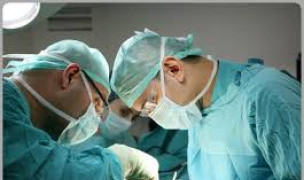 10 Terms
10 TermsHome > Industry/Domain > Biology; Medical > Human genome
Human genome
The human genome consists of 23 chromosome and the small mitochondrial DNA. 22 of the 23 chromosomes are autosomal chromosome pairs and the last one being a gender-determining pair. In total, the human genome contains the sequences of the 3 billion chemical base pairs that make up human DNA and approximately 20,000-25,000 genes. By understanding human genome, scientists are able to develop new medical applications that can significantly advance the state of health care.
Contributors in Human genome
Human genome
chimera
Medical; Human genome
An organism that contains cells or tissues with a different genotype. These can be mutated cells of the host organism or cells from a different organism or species.
cerebral hemisphere hemorrhage
Medical; Human genome
The bleeding into the tissue of the brain and especially of the cerebrum from a ruptured blood vessel.
codominance
Medical; Human genome
1) Situation in which two different alleles for a genetic trait are both expressed. 2) Codominance is a relationship between two versions of a gene. Individuals receive one version of a gene, ...
centimorgan
Medical; Human genome
1) The unit of linkage that refers to the distance between two gene loci determined by the frequency with which recombination occurs between them. Two loci are said to be one centimorgan apart if ...
chromatid
Medical; Human genome
1) One of the two side by side replicas produced by chromosome replication in mitosis or meiosis. Subunit of a chromosome after replication and prior to anaphase of meiosis II or mitosis. At ...
consanguineous
Medical; Human genome
Of the same blood or origin; specifically: relating to or involving persons (as first cousins) that are relatively closely related.
codon
Medical; Human genome
1) In DNA or RNA, a sequence of three nucleotides that codes for a certain amino acid or signals the termination of translation (stop or termination codon) 2) A specific sequence of three ...


